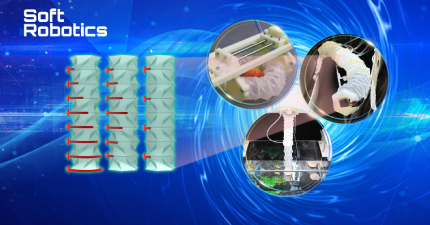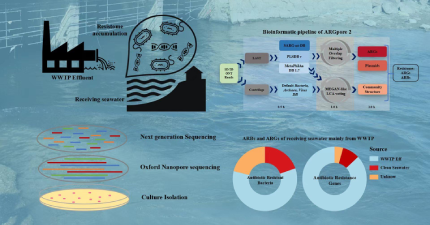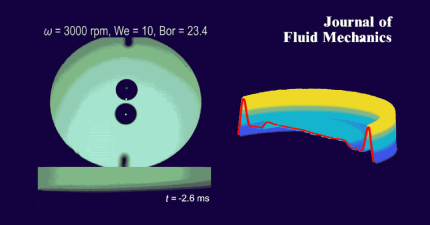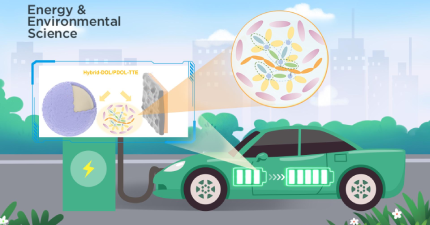Ecotoxicology studies on fish provide insight into impact of pollutants on environmental health
Apr 01, 2020
Southern University of Science and Technology (SUSTech) has been at the forefront of research on the ecotoxicology of environmental pollutants. Their cutting-edge studies over many years have determined how different pollutants can inhibit the growth and immune systems of fish, potentially disrupting the healthy and sustainable development of aquatic ecosystems.
Over the last two years, founding Dean of the School of Environmental Science and Engineering (ESE), Chunmiao Zheng, has led his team of professors and researchers to make critical advances in ecotoxicology. Their research findings have been published in high-impact academic journals such as Environmental Science and Technology (IF = 7.38) and Environment International (IF = 8.58).
Research Assistant Professor Wenhui Qiu led much of the research efforts. She pointed out that our understanding of the mechanisms behind these toxic pollutants provides a scientific basis for assessing their ecological risk. The team will, in the future, continue to focus on the transgenerational toxicity of endocrine disruptors and antibiotics.
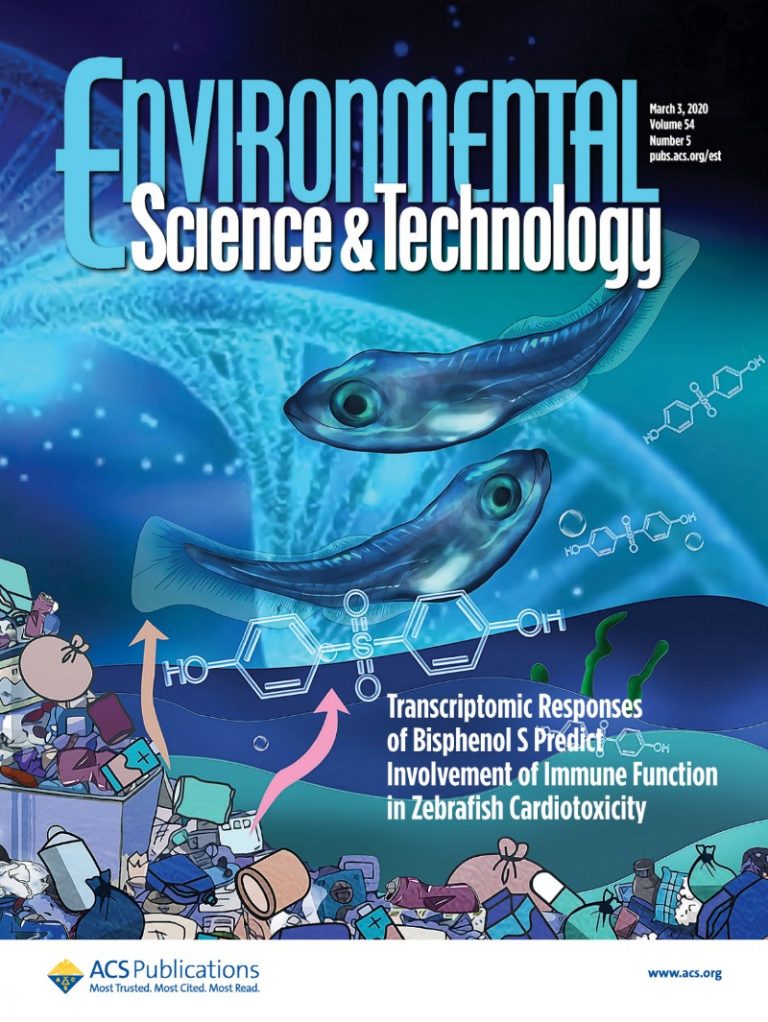
The research group was recently published in Environmental Science and Technology, where their paper titled, “Transcriptomic Responses of Bisphenol S Predict Involvement of Immune Function in the Cardiotoxicity of Early Life-Stage Zebrafish (Danio rerio),” was selected as the cover article. They had clarified that the endocrine disruptor Bisphenol S (an organic chemical commonly found in plastic and food container linings) had a cardiotoxic effect on fish. They could predict the impairment of the hearts in zebrafish from their embryonic stage through their juvenile stage. The researchers analyzed this through biological pathways and have successfully shown that Bisphenol S could interfere with cardiac function by regulating immune responses and causing tissue inflammation.
SUSTech’s Chunmiao Zheng and the University of California Riverside’s Daniel Schlenk were the co-correspondent authors.
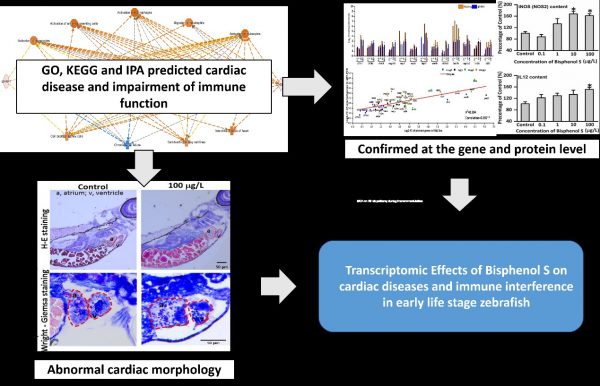
Figure 1: Transcriptomics predicts interference effects of bisphenol S on heart disease and the immune system in early zebrafish development
These results are not in isolation. They follow previous papers on the oxidative stress and immune interference created by the bisphenol family. The research teams have previously found that most of the bisphenol family are similarly toxic to zebrafish, in that they cause oxidative stress, inflame tissue, prevents cells from dealing with foreign bodies, and inhibits the immune system. While many commercial sectors used Bisphenol S has a safe alternative to Bisphenol A, the researchers have proven that none of the bisphenol family is safe from an ecosystem security standpoint. These research outcomes have been published in top journals such as Science of the Total Environment (IF = 5.92), Chemosphere (IF = 5.34), and Ecotoxicology and Environmental Safety (IF = 4.88).
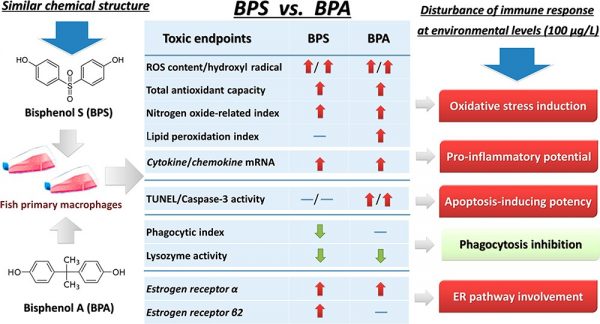
Figure 2: Comparison of BPS and BPA on fish immunotoxicity
The research team published a paper in Environment International under the title, “Evidence linking exposure of fish primary macrophages to antibiotics activates the NF-kB pathway.” The paper investigated the toxicity of antibiotics on zebrafish and fish primary cells. Modern agriculture has seen low doses of antibiotics flood marine environments and can hurt aquatic life. The researchers selected the four most commonly detected antibiotics found in marine ecosystems. They confirmed through in vitro cell experiments that exposure to antibiotics can inhibit immune function, which means that the abuse of antibiotics can harm the body.
The team has also used zebrafish embryos as models to clarify the toxicity of the four antibiotics at different developmental stages. The results of this research were published in Science of the Total Environment in a paper titled, “Single and joint toxic effects of four antibiotics on some metabolic pathways of zebrafish (Danio rerio) larvae).”
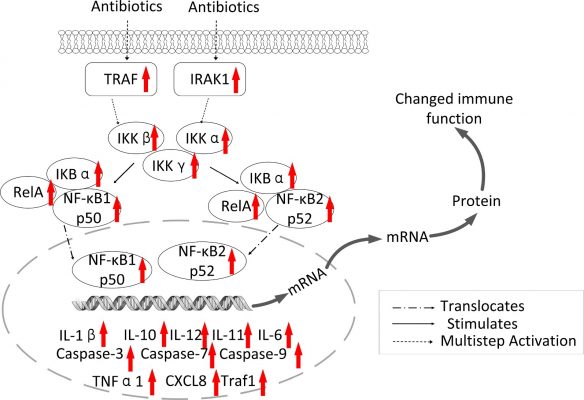
Figure 3: Antibiotics activate the NF-κB signaling pathway in primary macrophages of fish.
The team is committed to studying new pollutants in surface water, along with the patterns in which they occur and how they move through groundwater systems. His research team seeks to provide advanced scientific knowledge for high-quality decision-making around the sustainable use of water resources under global climate change.
Their research programs have received support from programs funded by partners such as the National Natural Science Foundation of China, National Key R&D Program of China, State Environmental Protection Key Laboratory of Integrated Surface Water-Groundwater Pollution Control, Guangdong Provincial Key Laboratory of Soil and Groundwater Pollution Control, Shenzhen Science and Technology Innovation Committee, SUSTech, and the Leading Talents of Guangdong Province Program.
Prominent papers:
Environmental Science & Technology: https://pubs.acs.org/toc/esthag/54/5
Environment International: https://www.sciencedirect.com/science/article/pii/S0160412019345817?via%3Dihub
Science of the Total Environment:
https://www.sciencedirect.com/science/article/pii/S0048969720305726?via%3Dihub
https://www.sciencedirect.com/science/article/pii/S0048969719306424?via%3Dihub
https://www.sciencedirect.com/science/article/pii/S0048969718342980?via%3Dihub
https://www.sciencedirect.com/science/article/pii/S0048969718337720?via%3Dihub
Ecotoxicology and Environmental Safety:
https://www.sciencedirect.com/science/article/pii/S0147651319300958?via%3Dihub
https://www.sciencedirect.com/science/article/pii/S0147651319300818?via%3Dihub
Chemosphere:
https://www.sciencedirect.com/science/article/pii/S004565351931639X?via%3Dihub
https://www.sciencedirect.com/science/article/pii/S0045653518317892?via%3Dihub
https://www.sciencedirect.com/science/article/pii/S0045653518307549?via%3Dihub
Environmental Pollution: https://www.sciencedirect.com/science/article/pii/S0269749118338181?via%3Dihub
Latest News
Related News



